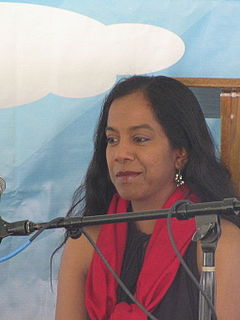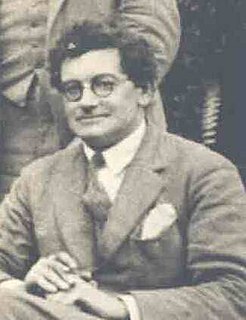A Quote by Vanna Bonta
Pythagorean thought was dominated by mathematics, but it was also profoundly mystical.
Quote Topics
Related Quotes
Diatonic, he heard the word in his head. Chromatic, pentatonic, hexatonic, heptatonic, octatonic, each iteration of the scale opening innumerable possibilities for harmony. He thought about the Pythagorean major third, the Didymus comma, the way the intervals sound out of tune rather than as though they were different notes. This, he thought, was where his brilliance at mathematics bled into his love of music; music was the realm in which his mathematical brain danced.
Mathematics has two faces: it is the rigorous science of Euclid, but it is also something else. Mathematics presented in the Euclidean way appears as a systematic, deductive science; but mathematics in the making appears as an experimental, inductive science. Both aspects are as old as the science of mathematics itself.
If you ask ... the man in the street ... the human significance of mathematics, the answer of the world will be, that mathematics has given mankind a metrical and computatory art essential to the effective conduct of daily life, that mathematics admits of countless applications in engineering and the natural sciences, and finally that mathematics is a most excellent instrumentality for giving mental discipline... [A mathematician will add] that mathematics is the exact science, the science of exact thought or of rigorous thinking.
... the word "theory" ... was originally an Orphic word, which Cornford interprets as "passionate sympathetic contemplation" ... For Pythagoras, the "passionate sympathetic contemplation" was intellectual, and issued in mathematical knowledge ... To those who have reluctantly learnt a little mathematics in school this may seem strange; but to those who have experienced the intoxicating delight of sudden understanding that mathematics gives, from time to time, to those who love it, the Pythagorean view will seem completely natural.
It is certain that the real function of art is to increase our self-consciousness; to make us more aware of what we are, and therefore of what the universe in which we live really is. And since mathematics, in its own way, also performs this function, it is not only aesthetically charming but profoundly significant. It is an art, and a great art.
Mystery is an inescapable ingredient of mathematics. Mathematics is full of unanswered questions, which far outnumber known theorems and results. It's the nature of mathematics to pose more problems than it can solve. Indeed, mathematics itself may be built on small islands of truth comprising the pieces of mathematics that can be validated by relatively short proofs. All else is speculation.
This excerpt is presented as reproduced by Copernicus in the preface to De Revolutionibus: "Some think that the earth remains at rest. But Philolaus the Pythagorean believes that, like the sun and moon, it revolves around the fire in an oblique circle. Heraclides of Pontus and Ecphantus the Pythagorean make the earth move, not in a progressive motion, but like a wheel in rotation from west to east around its own center."
The branches of mathematics are as various as the sciences to which they belong, and each subject of physical enquiry has its appropriate mathematics. In every form of material manifestation, there is a corresponding form of human thought, so that the human mind is as wide in its range of thought as the physical universe in which it thinks.
We live in a society where we're not taught how to deal with our weaknesses and frailties as human beings. We're not taught how to speak to our difficulties and challenges. We're taught the Pythagorean theorem and chemistry and biology and history. We're not taught anger management. We're not taught dissolution of fear and how to process shame and guilt. I've never in my life ever used the Pythagorean theorem!





































